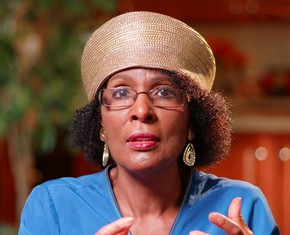The views expressed in our content reflect individual perspectives and do not represent the authoritative views of the Baha'i Faith.
The Baha’i teachings call for universal compulsory education for every child everywhere in the world – and they also emphasize the vital importance of teaching the arts:
In this new and wondrous Age, the unshakeable foundation is the teaching of sciences and arts. According to explicit Holy Texts, every child must be taught crafts and arts.
RELATED: Teaching Children to Be Hopeful About the Future
That passage from the writings of Abdu’l-Baha – the son and successor of Baha’u’llah, the prophet and founder of the Baha’i Faith – elevates the teaching of arts and sciences to a primary Baha’i principle. Abdu’l-Baha expanded on that principle in many other places in his writings:
… in this new cycle, education and training are recorded in the Book of God as obligatory and not voluntary. That is, it is enjoined upon the father and mother, as a duty, to strive with all effort to train the daughter and the son, to nurse them from the breast of knowledge and to rear them in the bosom of sciences and arts. Should they neglect this matter, they shall be held responsible and worthy of reproach in the presence of the stern Lord.
Wow! As a parent, if you don’t ensure that your children are educated in the arts as well as the sciences, you “shall be held responsible and worthy of reproach in the presence of the stern Lord.” That caused me to pause and ponder. Three points stand out for me; they may resonate with you, as well:
First, the Lord is called “stern.” This is rare in the scriptures of the Baha’i Faith. Instead, God is usually referred to as “the Most Merciful, the Ever-Forgiving, the Clement, the Gracious,” etc. To use the term “stern” signifies great import for the subject. The teaching of sciences and the arts must be invaluable, and may have an effect on both the individual and on society itself.
Second, many schools in various parts of the world emphasize rote memorization of religious texts, to the exclusion of science and the arts. In some of those places, only boys are educated. Obviously, these narrowly-focused religious schools do not prepare students well for life in the modern world, and that limited form of education has held nations and entire regions back, limiting their progress.
Third, many schools, at least in the United States, have eliminated the arts from their curriculum. A few have added it as an elective or a fee based after-school activity. What can you, as a parent, do? You can find independent arts instructors or classes, and you can lobby your school board and try to educate the board members on the importance of the arts. This can help encourage them to reinstate the arts into the school schedule.
Abdu’l-Baha gave us an indication of how vital arts education is when he suggested how to structure the school day:
He must study every day from morning till noon, so that he may learn how to read and write. From noon till about sunset he should acquire a craft. The children must both learn to read and acquire an art or skill.
Abdu’l-Baha noted the essential purpose of the arts:
Encourage the children from their earliest years to master every kind of learning, and make them eager to become skilled in every art — the aim being that through the favouring grace of God, the heart of each one may become even as a mirror disclosing the secrets of the universe, penetrating the innermost reality of all things; and that each may earn world-wide fame in all branches of knowledge, science and the arts.
He also asserted:
Among the greatest of all great services is the education of children and promotion of the various sciences, crafts and arts. Praised be God, ye are now exerting strenuous efforts toward this end. The more ye persevere in this most important task, the more will ye witness the confirmations of God, to such a degree that ye yourselves will be astonished.
This verily is a matter beyond all doubt, a pledge that shall certainly be redeemed.
These Baha’i principles are reflected today by many educators who probably never read the words of Abdu’l-Baha or perhaps even heard of him. Eloquent Evidence: Arts at the Core of Learning, a 1995 publication of the President’s Committee on the Arts and Humanities, states:
Schools that incorporate music, art, drama, dance, and creative writing into the basic curriculum have found that teaching the arts has a significant effect on overall success in school. Because the arts are closely associated with important ideas and events in history, students who have a good background in the arts are likely to have a richer source of information and insight to draw upon, compared to those who do not study the arts.
For example, students of the arts continue to outperform their non-arts peers on the Scholastic Assessment Test, according to The College Entrance Examination Board. In 1995, SAT scores for students who studied the arts more than four years were 59 points higher on the verbal and 44 points higher on the math portion than students with no coursework or experience in the arts.
If you stop and think about it, how good and how accurate is your own recall after you’ve heard a great lecture? No matter how profound the message, how eloquent the speaker, you remember but a fraction of what they said. You can take notes, which will help retain more of what you’ve written down, but at the risk of missing something valuable that is currently being said while you’re busily jotting away. When something is presented visually, musically, or dramatically, your retention increases, especially if it is easy to memorize, like a song or poem.
For example – you probably learned the alphabet by singing your ABCs.
Also, the number of days in any given calendar month can be recalled easily by reciting the poem “Thirty days hath September.” Surely you remember that one from your school days. I still recite it occasionally if I’m unsure of how many days are in a particular month.
Changing Education Through the Arts (CETA), a program of the John F. Kennedy Center for the Performing Arts, has as one of its main goals, to:
Help students learn more fluently and with greater motivation by providing professional development that builds teachers’ knowledge and skills in integrating the arts across the curriculum …
RELATED: Harnessing the Power of Youth to Help Homeless Students
One CETA Teacher remarked:
Through the CETA program, teachers come to understand that the arts really turn on lights in children’s minds—their learning is more meaningful and deeper.
A third grade student in the CETA program said:
Just reading a book doesn’t make things stick in your head, but when you do a tableau, what you read really sticks in your head.
Beyond just one art class or occasional art instruction, CETA calls on schools to fully integrate the arts:
Arts Integration is an approach to teaching in which students construct and demonstrate understanding through an art form. Students engage in a creative process which connects an art form and another subject area and meets evolving objectives in both.
This is not a new concept. The ancient philosopher Plato, for example, understood and called on us to include the art of music education:
I would teach children music, physics and philosophy; but most importantly music, for the patterns in music and all the arts are the keys to learning.
Whether or not you are a parent, you can advocate for change in our public schools. You can make friends and family aware of the importance and the necessity of bringing back and/or enhancing the type and amount of arts education offered in our schools. You can take it to heart for yourself, whatever your age, that art matters and that you can — and probably should — immerse yourself in it, too.
















Comments
Sign in or create an account
Continue with Googleor